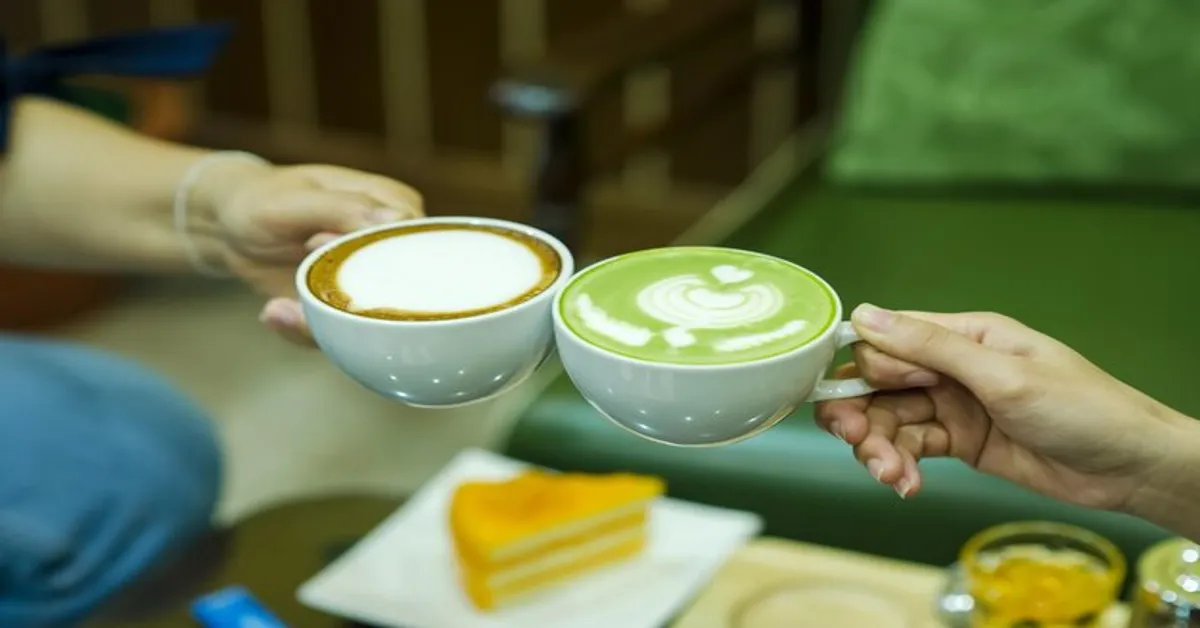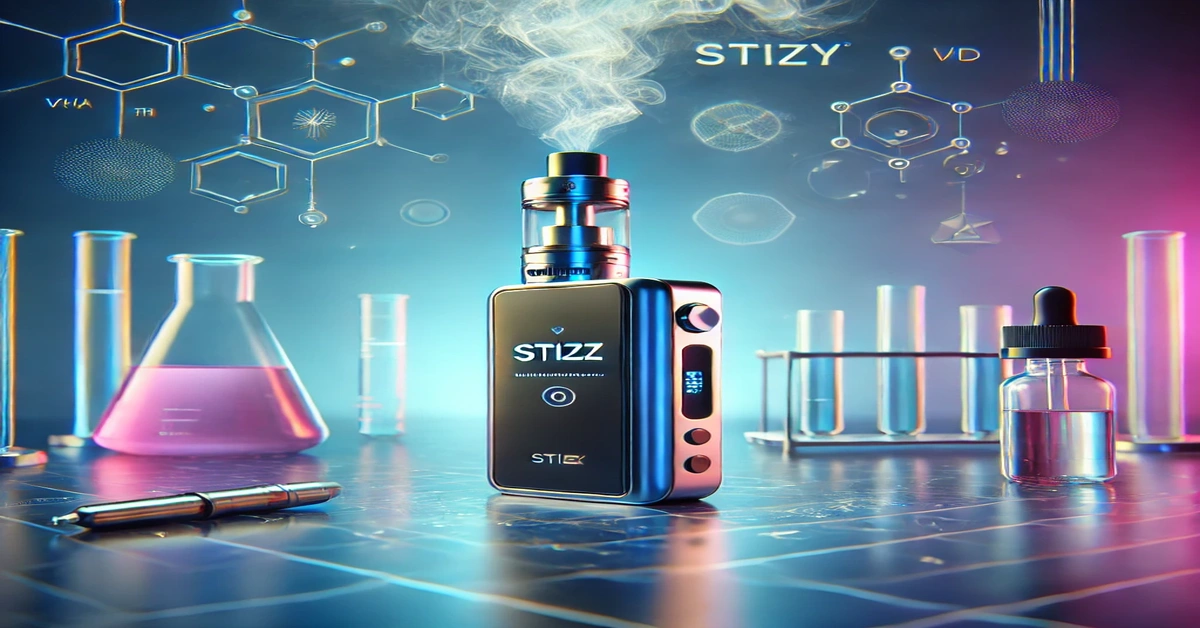Are you curious about matcha and its caffeine content? You’re not alone! With the rise of this vibrant green powder, many are asking: does matcha have caffeine? Known for its unique flavor and impressive health benefits, matcha has captured the hearts of tea enthusiasts worldwide. But how does it stack up against beloved coffee when it comes to that much-needed energy boost?
Let’s dive deep into the world of matcha and uncover everything from its caffeine levels to its numerous advantages over traditional brews. Whether you’re contemplating a switch or simply want to learn more about this superfood, we’ve got all your questions covered. Join us as we explore why matcha might just be your next favorite drink!
Caffeinated or Not? Exploring the Caffeine Content of Matcha
Matcha is often celebrated for its vibrant color and unique flavor, but many people wonder about its caffeine content. Unlike traditional green tea, which contains lower levels of caffeine, matcha packs a bit more punch. This is primarily because you consume the whole leaf in powdered form rather than steeping it.
Typically, a serving of matcha has approximately 70 mg of caffeine per teaspoon. Though this amount varies by brand and preparation method, it’s generally less than an average cup of coffee.
However, matcha’s caffeine comes with the added benefits of L-theanine—a compound that promotes relaxation without drowsiness—creating a balanced energy boost that’s different from coffee’s sharper jolt.
Comparing Matcha and Coffee for Caffeine Boost
When it comes to a caffeine boost, both matcha and coffee have their unique qualities. Coffee typically contains higher levels of caffeine per serving, making it the go-to choice for those seeking an immediate energy surge. A standard cup of brewed coffee can contain around 95 mg of caffeine or more.
Matcha, on the other hand, offers a different experience. Though its caffeine content is lower—about 70 mg per teaspoon—it delivers a steadier release of energy thanks to L-theanine. This amino acid promotes relaxation without drowsiness, creating a balanced effect that many find preferable over the jittery kick from coffee.
Choosing between them often depends on personal preference and desired effects throughout the day. Each beverage has its merits and can fit well within your wellness routine.
Read: Historical Performance of IDS Share Price: Lessons Learned for Future Investments
Matcha vs. Coffee: Top 5 Benefits of Matcha
Matcha offers unique advantages that make it a standout choice compared to coffee. First, matcha contains L-theanine, an amino acid that promotes relaxation and focus without the jitters often associated with caffeine. This means you can enjoy a calm alertness throughout your day.
Second, matcha is packed with antioxidants known as catechins. These compounds help combat oxidative stress and can enhance overall well-being. Coffee lacks these powerful antioxidants.
Additionally, consuming matcha may improve metabolism and support weight management due to its thermogenic properties. It’s also rich in vitamins and minerals that contribute to skin health and vitality—benefits not typically found in coffee’s profile.
How Much Caffeine in Matcha vs. Coffee
Matcha contains caffeine, but the amount varies based on preparation. Typically, one teaspoon of matcha powder has about 30-50 mg of caffeine. This is significantly lower than a standard cup of coffee, which can contain 95 mg or more per serving.
However, it’s essential to consider how you consume both beverages. A traditional serving of matcha often involves whisking several grams of powder into water, potentially raising its caffeine content in some cases.
In comparison, brewed coffee generally delivers a quicker energy boost due to its higher concentration and faster absorption rate. Understanding these differences helps individuals choose what best suits their needs for an effective pick-me-up throughout the day.
The Caffeine Content of Matcha
Matcha contains caffeine, but the amount varies depending on its quality and preparation. On average, a serving of matcha provides about 70 milligrams of caffeine per teaspoon. This is considerably less than a standard cup of coffee, which typically has around 95 milligrams.
However, what sets matcha apart is how the caffeine interacts with other compounds in the tea. Matcha includes L-theanine, an amino acid that promotes relaxation without drowsiness. This unique combination leads to a more sustained energy release compared to the quick spike from coffee.
This means you enjoy enhanced focus and clarity over time rather than just an immediate jolt. It’s essential to consider these factors when exploring whether matcha’s caffeine content suits your lifestyle preferences.
Understanding Caffeine
Caffeine is a naturally occurring stimulant found in various plants. It primarily affects the central nervous system, enhancing alertness and reducing fatigue. Many people turn to caffeine to kickstart their day or stay focused during long hours.
The way caffeine works involves blocking adenosine receptors in the brain, which are responsible for promoting sleepiness. This blockage leads to increased dopamine production, providing that familiar boost of energy and mood enhancement many crave.
Different beverages have varying caffeine levels based on factors like preparation methods and plant sources. Understanding these differences can guide your choices, especially when considering alternatives like matcha over traditional coffee options for sustained energy without jitters.
Caffeine Levels in Matcha
Matcha contains caffeine, but its levels are different from traditional coffee. On average, a serving of matcha offers about 30 to 70 milligrams of caffeine per teaspoon. This amount can vary based on the quality and preparation method of the matcha.
Unlike coffee’s rapid spike in energy, matcha delivers a more sustained boost due to its unique combination of other compounds. The presence of L-theanine, an amino acid found in tea leaves, helps regulate the release of caffeine into your system.
This means you may feel alert without experiencing jitters or crashes commonly associated with coffee consumption. Matcha’s balanced profile makes it an appealing choice for those seeking both focus and calmness throughout their day.
Read: Atlas FUSD Success Stories: Inspiring Journeys of Teachers and Students
Matcha vs. Regular Green Tea for Caffeine
Matcha and regular green tea both come from the Camellia sinensis plant, but their caffeine content varies significantly. Matcha is made from finely ground whole tea leaves, meaning you consume the entire leaf. This results in a higher concentration of caffeine compared to steeped green tea.
Typically, one cup of matcha contains about 70 milligrams of caffeine, while a cup of regular green tea has approximately 30-50 milligrams. The preparation method also impacts this difference; drinking matcha involves whisking powdered leaves directly into water.
Additionally, the presence of L-theanine in matcha creates a calming effect that balances its stimulating properties. This unique combination can enhance focus without the jitters often associated with coffee or even some types of green tea.
Transitioning to Matcha from Coffee
Transitioning from coffee to matcha can be a refreshing change for your caffeine routine. Start by gradually replacing one of your daily cups of coffee with matcha. This approach allows your body to adapt without the shock of a sudden switch.
Consider the differences in preparation and flavor as you make this transition. Matcha requires whisking powdered tea with hot water, creating a smooth, frothy drink that differs significantly from brewed coffee. Experimenting with different ratios can help you find the perfect balance for your taste buds.
Be mindful of how each beverage affects you throughout the day. While coffee often leads to jitters or crashes, many find that matcha provides sustained energy and focus due to its unique combination of caffeine and L-theanine.
Tips for a Smooth Transition
Transitioning from coffee to matcha can be a refreshing change. Start by gradually reducing your coffee intake over a week. This helps minimize withdrawal symptoms like headaches or fatigue.
Next, introduce matcha slowly into your routine. Begin with one cup of matcha per day and observe how it affects your energy levels and focus. You can adjust the quantity based on your comfort.
Experiment with different preparation methods and flavors to find what you enjoy most. Whether it’s iced matcha lattes or traditional hot cups, making this beverage enjoyable will encourage you to stick with it long-term.
Getting Started with Matcha
Getting started with matcha is both exciting and simple. First, choose a high-quality matcha powder, ideally ceremonial grade for the best flavor and health benefits. Look for vibrant green hues, which indicate freshness.
Next, gather your tools. A bamboo whisk (chasen), bowl (chawan), and sift are essential for preparing a smooth cup of matcha. You can also use an electric frother if you prefer convenience.
To prepare, add one to two teaspoons of matcha into your bowl. Gradually pour in hot water—ideally around 175°F—and whisk vigorously until it froths. Enjoy it straight or mix it into smoothies and lattes to explore various flavors while reaping the benefits of this vibrant superfood.
Making Delicious Matcha Variants
Making delicious matcha variants can elevate your beverage game. Start with a classic matcha latte by whisking premium matcha powder with warm milk or a plant-based alternative. Sweeten it lightly with honey, agave, or maple syrup for an extra touch of flavor.
For something refreshing, try iced matcha drinks. Blend ice with water and matcha to create a frosty treat. Add fruit like mango or berries for natural sweetness and vibrant color that enhances the experience.
Experimenting further leads to unique creations such as matcha smoothies. Combine spinach, banana, almond milk, and your favorite nut butter for a nutritious boost that’s both tasty and energizing. Each variant offers its own delightful spin on this versatile green tea powder.
Health Benefits Beyond Caffeine
Matcha offers a myriad of health benefits that extend beyond its caffeine content. Rich in antioxidants, particularly catechins, matcha helps combat oxidative stress in the body. This protective effect can minimize cellular damage and reduce the risk of chronic illnesses.
Moreover, matcha supports metabolism and fat burning due to its unique combination of compounds. Studies suggest that it may boost metabolic rates by enhancing thermogenesis, making it beneficial for those looking to manage weight.
Additionally, matcha promotes mental clarity and focus. The presence of L-theanine mitigates the jittery effects often associated with caffeine consumption while providing a calm energy boost. This makes it an excellent choice for those seeking sustained concentration without crashes or anxiety.
Antioxidants, Skin, and More
Matcha is rich in antioxidants, particularly catechins, which combat oxidative stress and help maintain healthy skin. These powerful compounds protect skin cells from damage caused by free radicals, contributing to a youthful appearance.
Regular consumption of matcha can improve your skin’s elasticity and reduce inflammation. This makes it an excellent choice for those dealing with acne or rosacea. Many beauty enthusiasts even incorporate matcha into their skincare routines through masks and scrubs.
Furthermore, the anti-inflammatory properties of matcha extend beyond the surface. They may aid in reducing redness and puffiness while promoting an even skin tone. With its multitude of benefits, matcha is more than just a drink; it’s a holistic approach to skincare wellness.
Impact on Different Health Aspects
Matcha’s unique composition influences various health aspects, making it a popular choice among wellness enthusiasts. The presence of L-theanine promotes relaxation without drowsiness, helping to reduce stress and anxiety levels. This calming effect can improve focus and mental clarity.
Additionally, matcha may support heart health by helping to regulate cholesterol levels and reducing blood pressure. Antioxidants found in matcha contribute to improved circulation and overall cardiovascular function.
Another significant impact is on metabolism. The catechins in matcha have been linked to increased fat oxidation during exercise, potentially aiding weight management efforts. Incorporating matcha into your routine not only offers caffeine but also fosters holistic well-being across multiple health dimensions.
Exploring Matcha Steadily for Holistic Benefits
Exploring matcha steadily can unlock a range of holistic benefits. By incorporating it into your daily routine, you allow your body to adjust and experience its full potential. This gradual approach helps mitigate any sudden changes in caffeine intake.
Matcha is rich in L-theanine, which promotes relaxation without drowsiness. This unique compound balances the energy boost provided by caffeine, resulting in sustained focus throughout the day. You may find that you feel more centered when enjoying matcha regularly.
Additionally, embracing matcha as part of a broader wellness regimen can enhance overall health. Its antioxidant properties work synergistically with other healthy habits like balanced nutrition and exercise, providing long-lasting effects beyond just mental clarity or energy boosts.
Conclusion
Matcha offers a unique blend of benefits that appeal to health-conscious individuals. Its caffeine content provides an energy boost without the jitteriness often associated with coffee. This makes it a great alternative, especially for those looking to cut down on traditional caffeinated beverages.
Beyond its energizing properties, matcha is rich in antioxidants and other nutrients. It supports skin health and can contribute positively to overall well-being. Incorporating matcha into your daily routine may enhance both physical and mental vitality.
Experimenting with different ways to enjoy matcha can be rewarding. From lattes to smoothies, there are countless recipes that highlight its delicious flavor while maximizing its health benefits.
FAQs
As we explore the caffeine content of matcha, it’s clear that this vibrant green powder offers a unique alternative to traditional coffee. With moderate levels of caffeine coupled with L-theanine, a powerful amino acid, matcha provides not just an energy boost but also enhanced focus and calmness.
Here are some frequently asked questions to further clarify what we’ve discussed:
1. Does matcha have caffeine?
Yes, matcha does contain caffeine—approximately 30-70 mg per serving depending on preparation methods and quality.
2. How does the caffeine in matcha compare to coffee?
Matcha generally has less caffeine than an 8 oz cup of brewed coffee (95 mg on average), making it gentler for those sensitive to high doses.
3. What are the health benefits of drinking matcha?
Besides its unique caffeinated effects, matcha is rich in antioxidants that can support overall health and wellness.
4. Can I replace my morning coffee with matcha?
Absolutely! Transitioning from coffee to matcha may provide sustained energy without crashing later in the day.
5. Are there any downsides to consuming too much matcha?
Excessive consumption can lead to side effects like insomnia or digestive issues due to its higher concentration of certain compounds compared to regular green tea.
Exploring these aspects helps you make an informed choice about incorporating this superfood into your daily routine!





